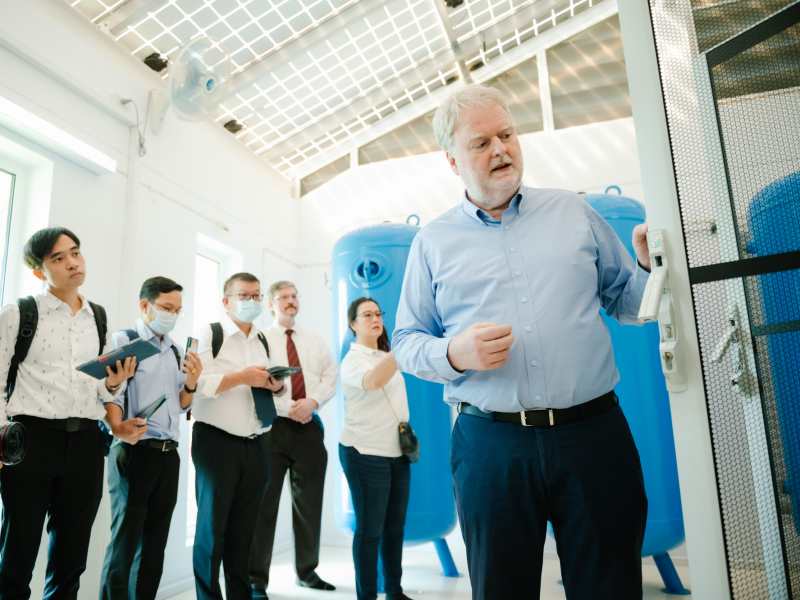Hydrogen technology manufacturer Enapter and its partners have launched a green hydrogen learning centre in Chiang Mai, Thailand.
The project, one of the first of its kind in Southeast Asia, will be led by Enapter, the German state-owned organisation GIZ, and Chiang Mai University’s Energy Research and Development Institute of Nakornping (ERDI).
The green hydrogen knowledge hub in Chiang Mai will consist of a training centre developing and offering hands-on courses and a green hydrogen demonstration site.
Have you read?
Enapter to supply electrolysers for South Korean hydrogen pilot
Hydrogen generator powers National Grid innovation centre
The aim of the training centre is to develop the next generation of energy professionals who will grow local hydrogen infrastructure and position Chiang Mai and Thailand as pioneers in modular hydrogen system technology.
The project is being implemented via the International Hydrogen Ramp-up Program (H2Uppp), an initiative carried out by the GIZ on behalf of the German Federal Ministry for Economic Affairs and Climate Action (BMWK).
Simon Rolland, energy portfolio programme director, GIZ, said in a statement: “This project will not only provide a training ground for future project developers, but also serve as a model that showcases the viability of green hydrogen systems. With the combined efforts of CMU, Enapter, and GIZ, we are bringing together a wealth of knowledge and expertise that will make Chiang Mai a hub for innovation throughout Southeast Asia.”
The project follows the Phi Suea House in Chiang Mai, a multi-house residential development that in 2015 became the world’s first self-sustaining development powered by a clean energy system based on hydrogen energy storage.
Phi Suea House was developed by Enapter CEO Sebastian-Justus Schmidt to showcase combined solar and green hydrogen tech feasibility – and has evolved into a hub of hydrogen activity and a technology prototyping sandbox. It will be part of the partnership to set up the knowledge centre.
Sebastian-Justus Schmidt commented, “Every new technology first goes through a learning phase. The doubts that arise at the beginning can be reliably dispelled with education and knowledge transfer. This project will act like a green hydrogen lighthouse for the region and make Thailand, and especially Chiang Mai, known as a knowledge centre in hydrogen, even beyond the country’s borders.”
Thailand has set ambitious decarbonisation goals and sees cooperation between the Thai and German public and private sectors as critical to developing a viable hydrogen economy and achieving these targets.
